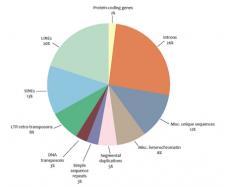ExAC Project Pins Down Rare Gene Variants
By Nature Editorial,
Nature Editorial
| 08. 17. 2016
More than one million people have now had their genome sequenced, or its protein-coding regions (the exome). The hope is that this information can be shared and linked to phenotype — specifically, disease — and improve medical care. An obstacle is that only a small fraction of these data are publicly available.
In an important step, we report this week the first publication from the Exome Aggregation Consortium (ExAC), which has generated the largest catalogue so far of variation in human protein-coding regions. It aggregates sequence data from some 60,000 people. Most importantly, it puts the information in a publicly accessible database that is already a crucial resource (http://exac.broadinstitute.org).
There are challenges in sharing such data sets — the project scientists deserve credit for making this one open access. Its scale offers insight into rare genetic variation across populations. It identifies more than 7.4 million (mostly new) variants at high confidence, and documents rare mutations that independently emerged, providing the first estimate of the frequency of their recurrence. And it finds 3,230 genes that show nearly no cases of...
Related Articles
By Steve Rose, The Guardian | 01.28.2026
Ed Zitron, EZPR.com; Experience Summit stage;
Web Summit 2024 via Wikipedia Commons licensed under CC by 2.0
If some time in an entirely possible future they come to make a movie about “how the AI bubble burst”, Ed Zitron will...
By Arthur Lazarus, MedPage Today | 01.23.2026
A growing body of contemporary research and reporting exposes how old ideas can find new life when repurposed within modern systems of medicine, technology, and public policy. Over the last decade, several trends have converged:
- The rise of polygenic scoring...
By Daphne O. Martschenko and Julia E. H. Brown, Hastings Bioethics Forum | 01.14.2026
There is growing concern that falling fertility rates will lead to economic and demographic catastrophe. The social and political movement known as pronatalism looks to combat depopulation by encouraging people to have as many children as possible. But not just...
By Josie Ensor, The Times | 12.09.2025
A fertility start-up that promises to screen embryos to give would-be parents their “best baby” has come under fire for a “misuse of science”.
Nucleus Genomics describes its mission as “IVF for genetic optimisation”, offering advanced embryo testing that allows...




